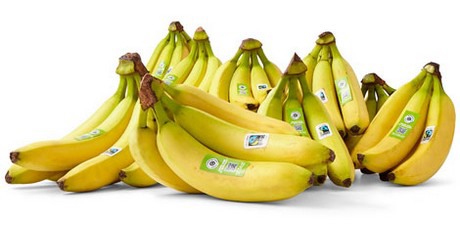Three companies are using blockchain technology to provide insight into the production chain of bananas. These companies are the Dutch supermarket chain, PLUS, their supplier, Fyffes, and their technology partner, SIM. A QR code has been placed on the bananas. Consumers can scan this to see which route the banana has taken. This product starts its journey in South America.
It ultimately ends up in Dutch shoppers' baskets. PLUS sells loose bananas in its supermarkets. They have been Fairtrade certified for close on ten years now. This fruit is now also climate-neutral. By offering transparency, the supermarket organization wants to provide clarity about the bananas' origin. They also want to give people an insight into all the efforts being made in people, the environment, and climate.
According to PLUS, transparency in the chain is becoming increasingly important. They have also noticed that consumers have a growing demand. They want responsibly-farmed, honest products. People are more interested in where the products come from too. Bananas are the most-bought item in the supermarket.
There are benefits to clearly mapping this product's chain. It becomes evident where the most impact and changes can be made to achieve sustainability. All the chain's steps are followed. This is done to ensure that the bananas are produced with respect. Respect for people, the environment, and the climate.
Transparent banana chain
When blockchain technology is applied, all the steps in the chain are recorded. They are also linked and made transparent. Consumers can scan the loose bananas' QR code and enter the accompanying Fairtrade FLO-ID. These codes allow them to follow the entire route their bananas took - from the plantation to the store.
This fruit's journey begins on one of 17 cooperatives in the Urabá region of Colombia. Banana trees grow here, and this is where the fruit is harvested. The blockchain also contains data about when the bananas were harvested. There is information about the socio-economic activities and CO2 emissions in each link too.
First supermarket with climate-neutral bananas
PLUS considers reducing the environmental impact of its products as an important responsibility. This is especially important in the areas around the equator. There, the effects of climate change are particularly noticeable. The weather is unpredictable. Sometimes heavy storms cause flooding. At other times, there are droughts and water shortages. PLUS wants to help fight climate change. This is why this supermarket chain has made sure all its bananas are climate-neutral.
This product's CO2 footprint has been mapped. PLUS and its chain partners intend to reduce this product's CO2 emissions. They want to do this along every step of the bananas' route. Maersk, for example, makes every effort to reduce CO2 emissions during the sea journey. New ripening cells have also started being used. These can cut CO2 emissions by 30%.
Sustainable energy projects compensate for the remaining emissions. This process entails measuring, reducing, and compensating for each, individual banana's CO2 footprint. This entire process will be verified annually. This verification is done according to the Climate Neutral Guarantee mark of quality.
Fairtrade certified
All bananas found in PLUS supermarket shelves are Fairtrade certified. This has been the case since 2010. They will also remain so. The supermarket group pays its Colombian banana farmers a minimum price as well as a Fairtrade premium. The farmers can use this premium to invest in their businesses. They are able to future-proof their farms. They can also improve their laborers' lives with better housing, education, and health care.
Source: PLUS
